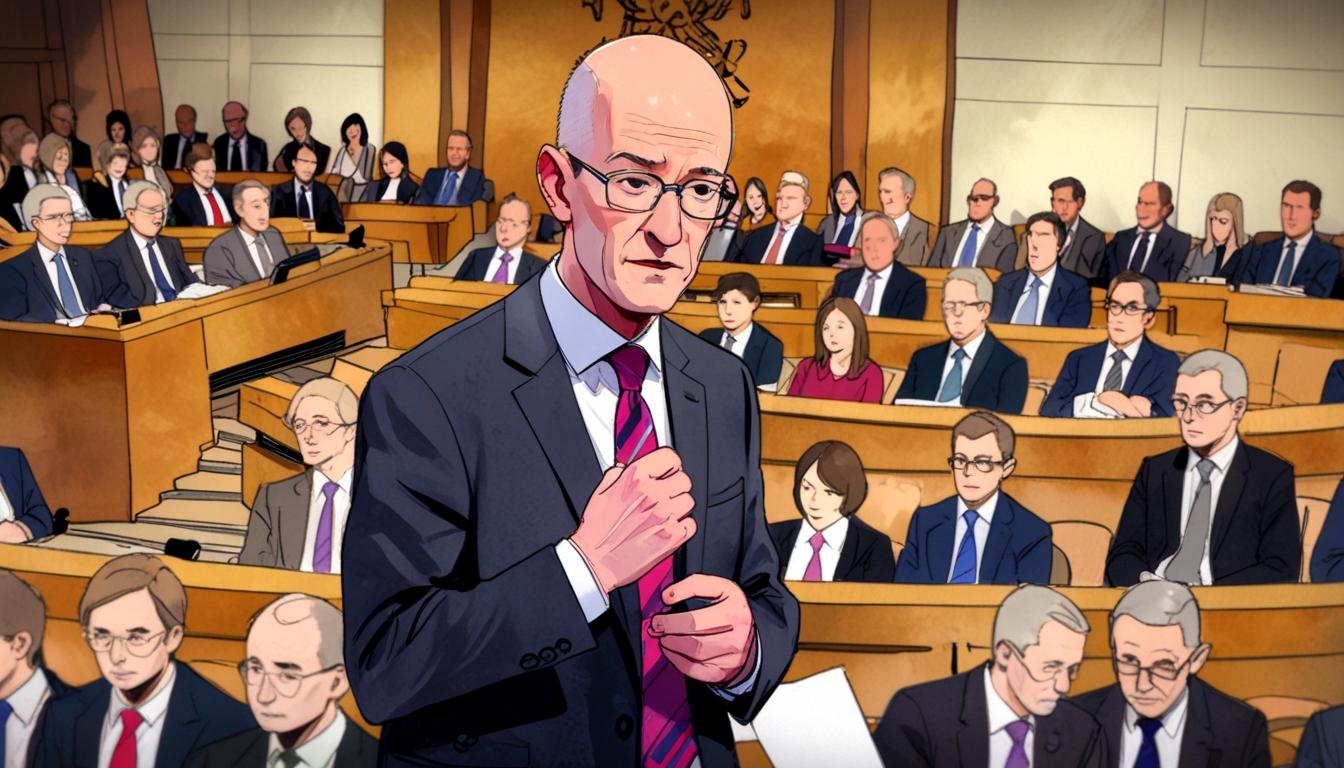Hubris at Holyrood: Swinney's Uninspiring Programme for Government
In a recent delivery of the Scottish National Party (SNP)’s annual programme for government, Scottish Finance Secretary John Swinney announced two key highlights: off-peak rail travel and an increase of 100,000 GP appointments. However, as many observers noted, these announcements seemed disconnected, almost as if they were hastily strung together without a coherent vision.
The annual address, often likened to a Scottish version of the King’s Speech, is usually delivered with much pomp and ceremony. Yet, this time, the atmosphere in Holyrood was decidedly underwhelming. Many Scottish National Party Members of the Scottish Parliament (MSPs) notably absented themselves from the chamber, suggesting a lack of enthusiasm for the government’s direction.
Swinney's speech lacked the dynamism and forward-thinking strategies that might inspire confidence. Instead, it read as a routine checklist of pledges that, according to critics, echo previous, unfulfilled promises from the SNP's history. Notably, the promise of increased GP appointments has been highlighted as a repeat of commitments made eight years ago that ultimately led to little progress.
In a sharp critique, Conservative MSP Russell Findlay likened his approach to that of a bushman wielding a machete, slicing through what he described as the First Minister’s hubris with precision. He pointed to the fact that one in three of Swinney’s own members opted not to attend the address, which he argued reflected discontent within the party regarding its governance. “No wonder one in three of his own MSPs couldn’t be bothered to turn up to listen to this,” Findlay remarked, voicing concerns that resonate with many constituents aware of the government’s track record.
Swinney's promises of scrapping peak rail fares were positioned as a means to woo voters ahead of next year’s devolved elections, yet many questioned the sincerity of such measures. It begs the question: Are these initiatives genuinely beneficial for the public, or merely political manoeuvres to maintain power?
Similarly, the topic of economic independence became contentious as Findlay challenged the feasibility of the SNP’s continued push for independence funding. “He’s not going to find one because there isn’t one,” he stated, dismissing the SNP’s claims.
While Swinney attempted to position himself as open to cooperation, openly calling for a spirit of compromise akin to that experienced during budget negotiations, critics assert that he often prefers to engage pugnaciously rather than seek collaborative solutions. His sharp rebuttals to Findlay’s criticisms illustrated a level of defensiveness that often overshadows productive debate.
Labour leader Anas Sarwar seized the opportunity to enter the fray, delivering pointed critiques that were notably absent in previous sessions. His inquiry, “Is that it?” became emblematic of frustration directed towards a government perceived to be coasting rather than innovating. Sarwar underscored that good ideas from the SNP had become notably scarce after nearly two decades in power, leaving constituents yearning for a more compelling narrative.
As the dust settles from this year’s programme for government, it’s clear that the SNP must reckon with both internal dissent and external critique. While some may argue that Swinney has become overly confident in his government’s standing, the reaction from both opposition parties and the public suggests that their patience may be wearing thin. If the First Minister intends to turn that confidence into tangible results, he would do well to address not only the policies on paper but also the aspirations of the very constituents he swears to represent.
##Reference Map:
- Paragraph 1 – [1]
- Paragraph 2 – [1]
- Paragraph 3 – [1]
- Paragraph 4 – [1]
- Paragraph 5 – [1]
- Paragraph 6 – [1]
- Paragraph 7 – [1]
- Paragraph 8 – [1]
Source: Noah Wire Services
